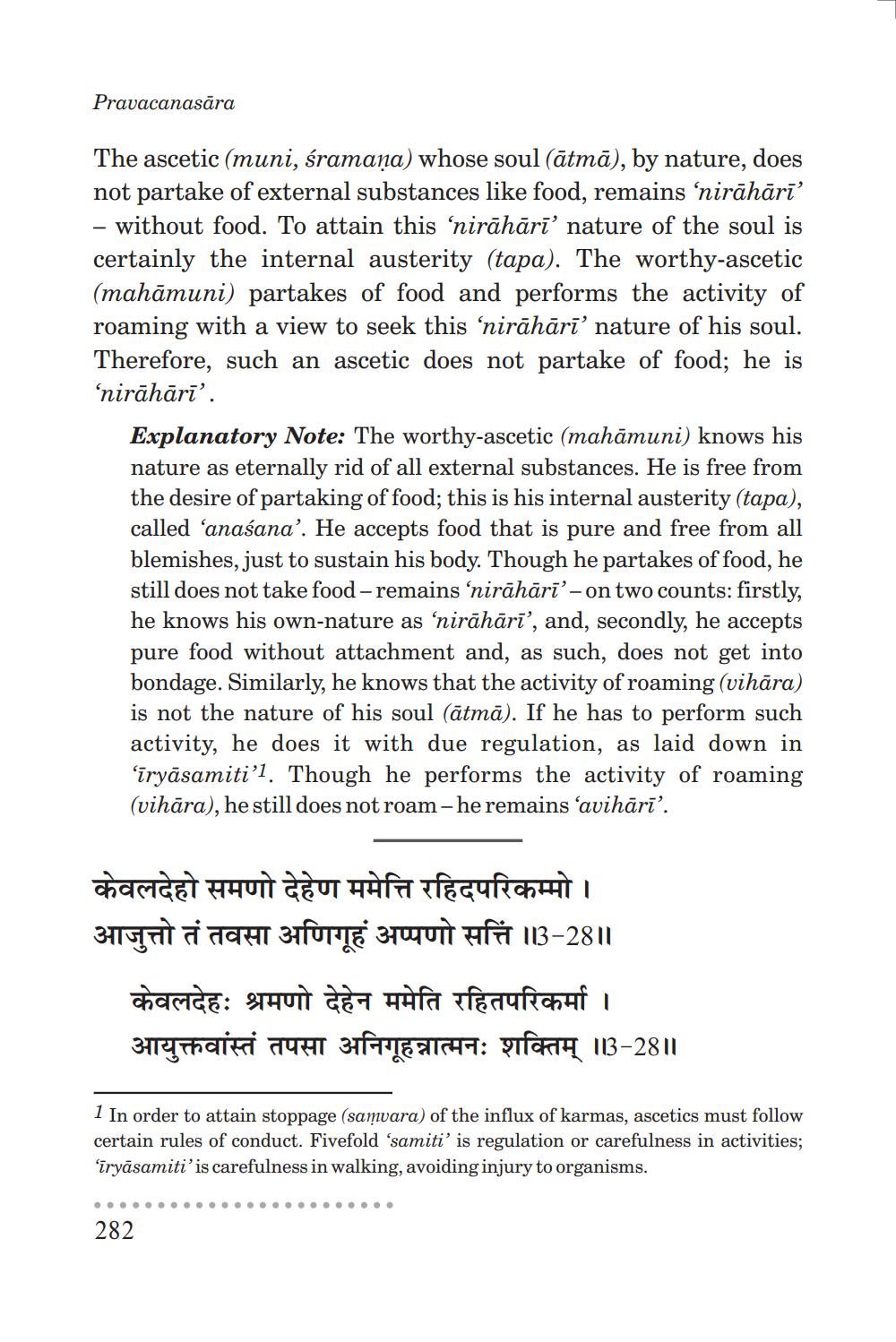________________
Pravacanasara
The ascetic (muni, śramana) whose soul (ātmā), by nature, does not partake of external substances like food, remains ‘nirāhārī’ - without food. To attain this 'nirāhārī' nature of the soul is certainly the internal austerity (tapa). The worthy-ascetic (mahāmuni) partakes of food and performs the activity of roaming with a view to seek this 'nirāhārī' nature of his soul. Therefore, such an ascetic does not partake of food; he is 'nirāhārī'.
Explanatory Note: The worthy-ascetic (mahāmuni) knows his nature as eternally rid of all external substances. He is free from the desire of partaking of food; this is his internal austerity (tapa), called 'anasana'. He accepts food that is pure and free from all blemishes, just to sustain his body. Though he partakes of food, he still does not take food - remains 'nirāhārī' - on two counts: firstly, he knows his own-nature as 'nirāhārī', and, secondly, he accepts pure food without attachment and, as such, does not get into bondage. Similarly, he knows that the activity of roaming (vihāra) is not the nature of his soul (ātmā). If he has to perform such activity, he does it with due regulation, as laid down in 'īryāsamiti'1. Though he performs the activity of roaming (vihāra), he still does not roam - he remains ‘avihārī.
केवलदेहो समणो देहेण ममेत्ति रहिदपरिकम्मो । आजुत्तो तं तवसा अणिगृहं अप्पणो सत्तिं ॥3-281
केवलदेहः श्रमणो देहेन ममेति रहितपरिकर्मा । आयुक्तवांस्तं तपसा अनिगूहन्नात्मनः शक्तिम् 113-281
1 In order to attain stoppage (samvara) of the influx of karmas, ascetics must follow certain rules of conduct. Fivefold 'samiti' is regulation or carefulness in activities; 'iryāsamiti' is carefulness in walking, avoiding injury to organisms.
282




